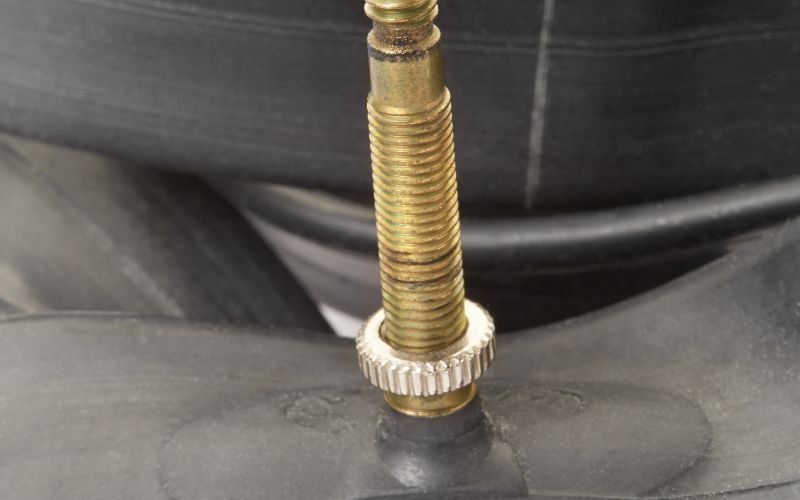When choosing radiator valve, homeowners are often faced with the decision of picking between chrome and brass valves. Both options come with their own set of advantages and disadvantages.
This blog post aims to provide an in-depth comparison of chrome and brass radiator valves, detailing their properties, durability, cost, and overall performance. We will also include a table summarizing the key differences for your perusal.
What are radiator valves?
Radiator valves are essential components that control the flow of water or steam through radiators in a central heating system. By adjusting the valves, you can regulate the amount of heat emitted by the radiator and maintain a comfortable temperature in your home. The two main types of radiator valves are manual and thermostatic, but in this post, we will focus on the material differences between chrome and brass valves.
Key Differences between Chrome and Brass Radiator Valves
| Property | Chrome Radiator Valves | Brass Radiator Valves |
|---|---|---|
| Material | Chrome-plated brass | Solid brass |
| Appearance | Shiny, modern look | Classic, warm look |
| Durability | High | Very high |
| Corrosion Resistance | Good | Excellent |
| Cost | Moderate to high | Moderate |
| Popularity Trend | Increasing | Stable |
Chrome radiator valves
They are made from brass that has been coated with a thin layer of chromium. This gives them a shiny, modern appearance that many homeowners find attractive. Chrome valves are known for their durability and good corrosion resistance, making them suitable for use in various environments.
However, they can be prone to scratches and damage if not handled carefully. The cost of chrome radiator valves tend to be moderate to high, depending on the specific design and brand.

Brass radiator valves
They are made from solid brass, which is an alloy of copper and zinc. Brass valves have a warm, classic appearance that can complement traditional interior designs.
They are incredibly durable and boast excellent corrosion resistance, making them ideal for use in humid environments or areas with hard water. Brass valves require little maintenance, as they don’t chip or scratch easily. The cost of brass radiator valves are generally moderate, but certain designs and finishes may increase the price.
Applications of Chrome and Brass Radiator Valves
In this section, we will delve deeper into the specific applications and scenarios where chrome and brass radiator valves are commonly used. The choice between these two materials often depends on factors such as the type of heating system, the overall design and aesthetic of the room, and the local environmental conditions.
Chrome Radiator Valves: Ideal Scenarios
- Modern and contemporary interiors: Chrome radiator valves are perfect for homes with a modern and contemporary design. Their shiny, sleek appearance complements minimalist and industrial-style interiors, making them an attractive choice for homeowners who prefer a clean, polished look.
- Humid environments: While both chrome and brass radiator valves have good corrosion resistance, chrome-plated brass valves offer an additional layer of protection against moisture. This makes them suitable for use in humid environments such as bathrooms, kitchens, and laundry rooms.
- Coordination with other fixtures: If your home has other chrome fixtures or fittings, such as taps, showerheads, or towel rails, choosing chrome radiator valves can help maintain a consistent design theme throughout your home.
Brass Radiator Valves: Ideal Scenarios
- Traditional and classic interiors: Brass radiator valves are an excellent choice for homes with a traditional or classic design. Their warm, timeless appearance complements Victorian, Edwardian, and Georgian styles, making them a popular option for older properties or those seeking a vintage aesthetic.
- Hard water areas: Brass radiator valves boast exceptional corrosion resistance, making them ideal for use in areas with hard water. The solid brass construction is less susceptible to limescale buildup and mineral deposits, ensuring the long-term efficiency and performance of these valves.
- Heritage properties and period homes: For heritage properties or period homes where maintaining the original character and charm is essential, brass radiator valves are an excellent choice. They can be found in a variety of designs and finishes, such as antique brass, satin brass, or polished brass, to seamlessly blend with the existing decor.
- Coordination with other fixtures: If your home has brass fixtures or fittings, such as door handles, light switches, or taps, selecting these valves can help create a cohesive design theme throughout your home.
Conclusion:
Both chrome and brass radiator valves have their own unique advantages and aesthetic appeal. Chrome valves are known for their modern, sleek appearance and good corrosion resistance, while brass valves offer excellent durability, corrosion resistance, and a classic look.
The choice between the two ultimately depends on your personal preferences, budget, and the overall design of your home. No matter which option you choose, investing in high-quality radiator valves is crucial to ensuring the longevity and efficiency of your central heating system.
Moreover, by understanding the ideal scenarios for each type of valve, you can make an informed decision that best suits your needs and ensures the optimal performance of your central heating system.




